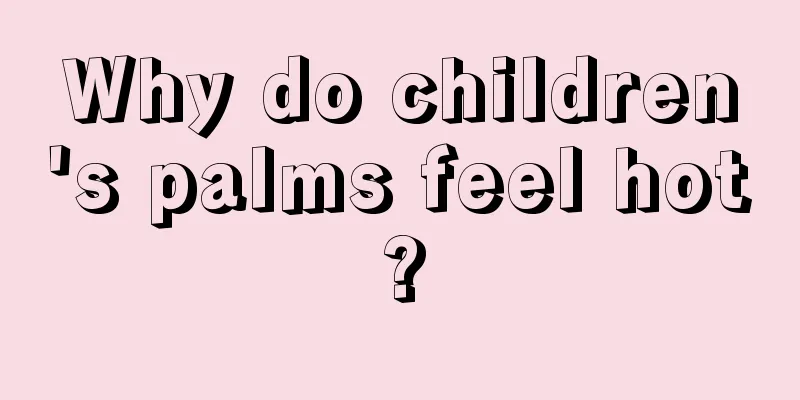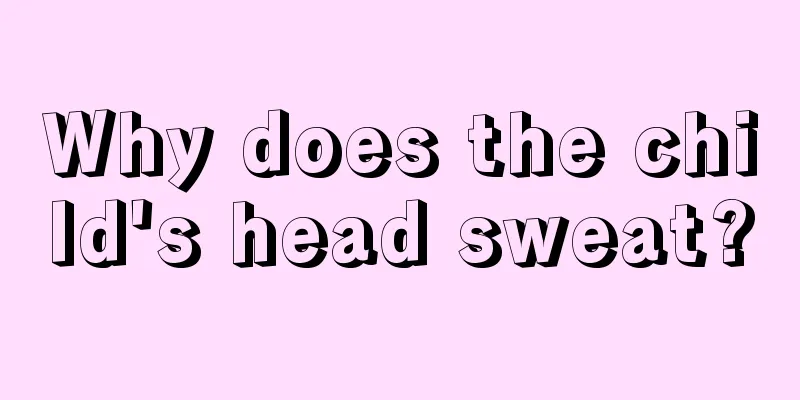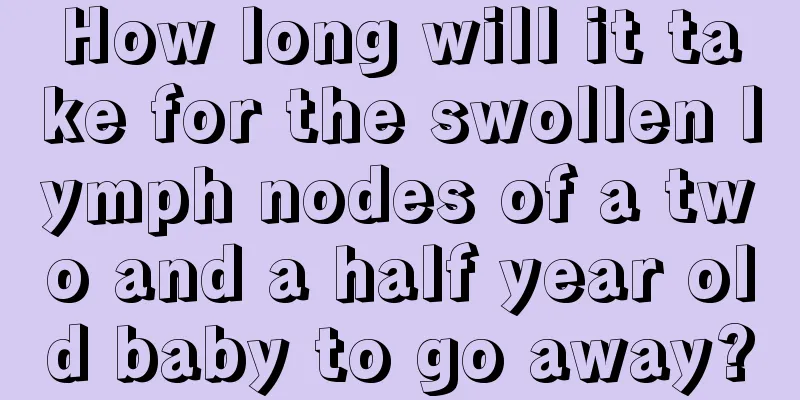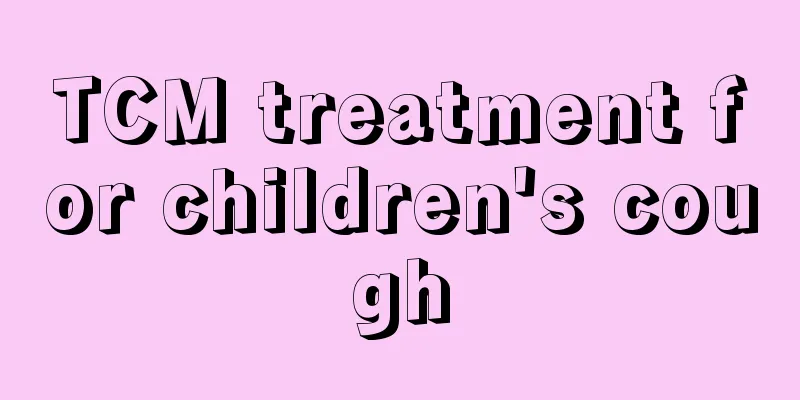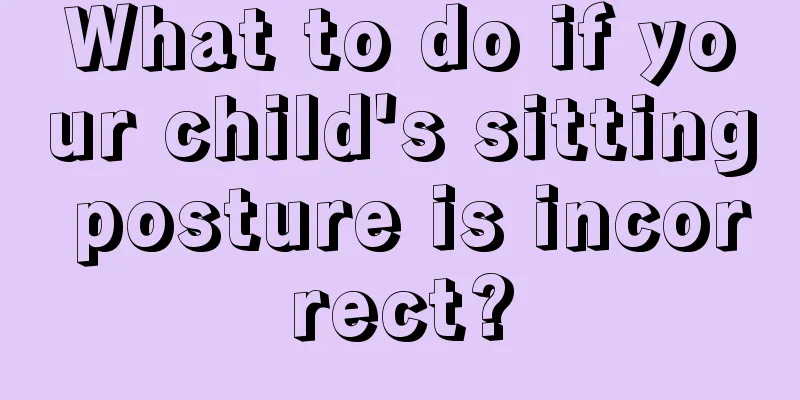Baby loves to sweat, what's going on?

|
Although sweating is a very common thing, it actually contains many factors. For example, the problem of baby sweating also needs to be viewed with a dialectical attitude. Sweating is not only caused by heat, but also by many other factors. It is necessary to judge according to the symptoms of baby sweating. So what factors cause baby to sweat? What is the matter with baby sweating frequently? What should I do if my baby sweats? Baby sweats a lot - physiological hyperhidrosis1. Physical factors Physiological hyperhidrosis means that a child has good growth and development, is in good health, and has no diseases, but often sweats during sleep. Traditional Chinese medicine believes that children have a "pure yang body" and their "pores are loose and their skin is thin and tender." After falling asleep, the yang energy enters the body and there is relatively more yang energy in the body. Through the transpiration of the yang energy, it is easy for children to sweat slightly after falling asleep. Modern medicine explains that infancy and childhood have an active metabolism, produce more heat, and have thin and tender skin. In addition, children are lively and active, and many children have to play with their parents for a while after going to bed at night, so they often sweat a lot after falling asleep.
With the improvement of living standards, even in winter, heating and air conditioning can keep the temperature in the house very high, but parents are still afraid that their children will be cold when they sleep at night, so they cover their children thickly, especially babies, who are always wrapped tightly. Little do people know that because the temperature regulation center of the brain's nervous system is not yet fully developed and children are in the growth and development period, their body metabolism is very active and produces too much heat. Coupled with the stimulation of thick clothes and quilts, they can only dissipate the heat in the body by sweating to regulate their body temperature to a normal level. 3. Overnutrition Many parents are angry and always worry that their children are not getting enough nutrition, so they try every means to let their children eat more supplements, often drink milk or eat something high in calorie before going to bed. As a result, the body produces a lot of heat after sleeping, and the baby sweats a lot when sleeping, so he has to dissipate heat through sweating through the skin.
1. Spontaneous sweating and night sweats Pathological hyperhidrosis, also known as sweat syndrome in traditional Chinese medicine, refers to the phenomenon of excessive sweating, even profuse sweating, on the whole body or in a certain part of the body in a quiet state or for no reason. Among them, spontaneous sweating and night sweats are more common in children. Spontaneous sweating refers to "sweating for no reason regardless of whether the child is awake or asleep", which means that the child will sweat for no reason regardless of whether he is awake or asleep; night sweats refers to "sweating during sleep and stopping when awake". In clinical practice, children's sweating is often accompanied by spontaneous sweating and night sweats. In traditional Chinese medicine, whether it is spontaneous sweating or night sweats, most of them are manifestations of "weakness". Therefore, we often say that children tend to sweat a lot, which is mostly caused by improper feeding or poor digestion and absorption. In terms of nursing, attention should be paid to adjusting feeding methods, promoting children's appetite, appropriately increasing the intake of protein, fat and sugar, and using traditional Chinese medicine to regulate spleen and stomach disharmony when necessary. 2. Disease factors Some diseases can also cause children to show pathological hyperhidrosis. For example, some children have sparse, falling or no hair on the back of their heads. This is because the children sweat too much on their heads, causing local itching. They often shake their heads and rub against the pillows while sleeping, causing ring-shaped hair loss on the back of the head, which is medically called "pillow baldness." This is an early symptom of rickets in infants. As long as it is discovered early and vitamin D and calcium are supplemented in time, when rickets is under control, sweating will stop by itself. |
<<: Five-month-old baby sweats on the back of his head
>>: 6 month old baby sweating on the back of the head
Recommend
Why don't children grow taller?
Children are the inheritance of family bloodline ...
What are the symptoms of uremia in children?
Uremia is a very serious disease. Generally, the ...
What medicine should be used for athlete's foot in a 7-year-old child
Athlete's foot is a common foot skin disease ...
Can children with autism be cured?
Parents of children with autism find it particula...
Reasons for nosebleeds in 10-month-old babies
Many young parents always feel at a loss when the...
Can children eat durian?
Many adults like to eat durian, but children also...
Causes and care of blue eyes in babies
Many newborn babies are relatively fragile. At th...
What should I do if my baby is bitten by a spider?
Little babies are very curious. Sometimes they ar...
What is the effect of drinking glucose for babies?
Glucose is the most widely distributed monosaccha...
Can childhood asthma be eradicated?
Asthma is a disease that occurs frequently and ha...
An eight-year-old girl has a lump in her breast
When a little girl is about ten years old, her bo...
Why does my baby have thick toenails?
The editor knows that some mothers are worried ab...
Does children's growth hormone have side effects?
If a child suffers from malnutrition during his g...
What should I do if I was not vaccinated with BCG at birth?
The Kajie vaccine is a very important vaccine, ma...
What might be the cause of a child’s black neck?
If you find that your child has a black neck or d...


